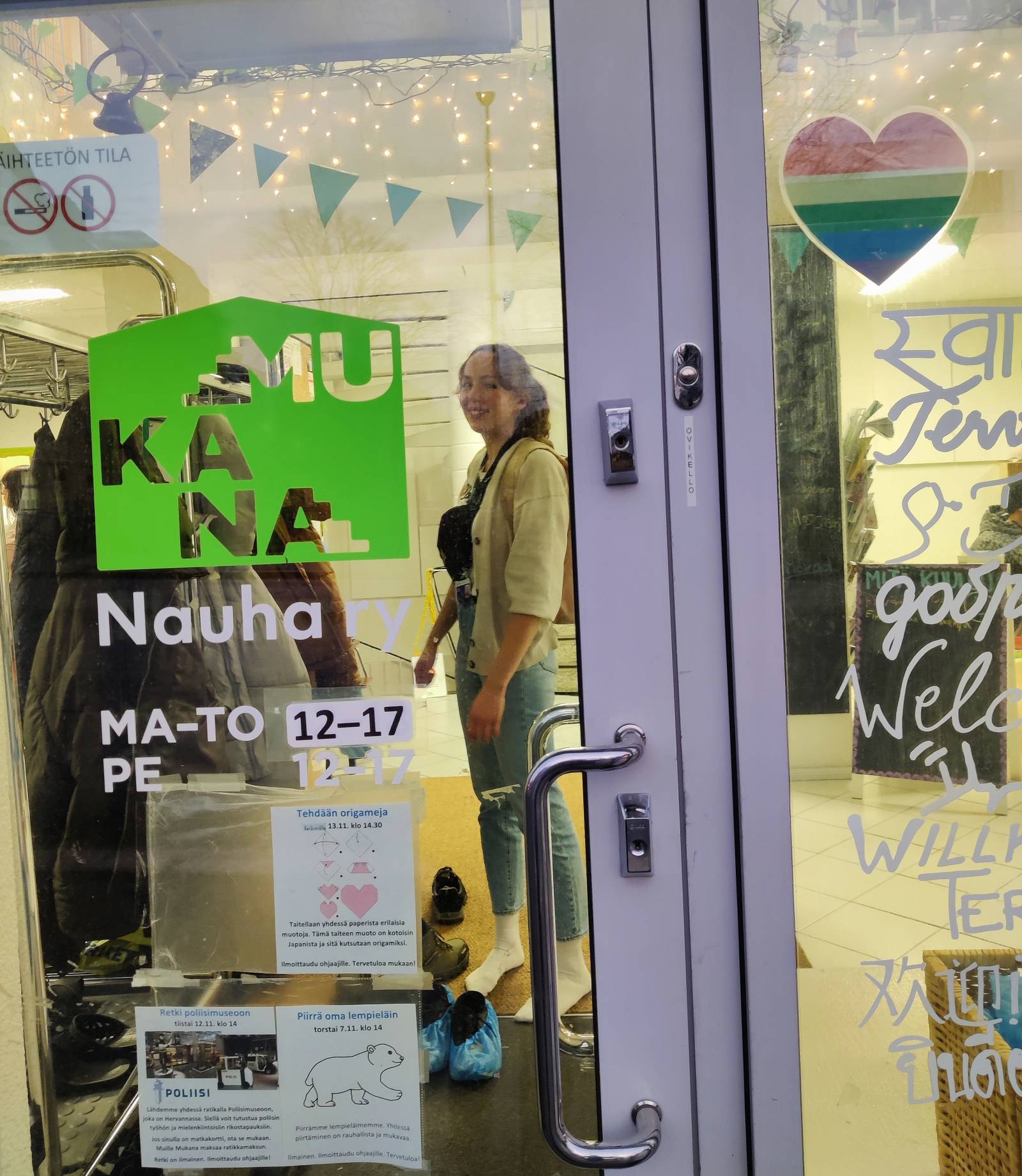Public discussions frequently highlight concerns about the challenges of immigrant integration and social segregation. Positive interactions and the development of networks between immigrants and the majority population are key elements of the dynamic and reciprocal process of integration (Centre of Expertise in Immigrant Integration 2021). How can we promote the realization of these important encounters?
With this question in mind, we, Annika Valtonen and Akseli Salminen from the SITEs research group, visited Kohtaamispaikka Mukana in early November. Mukana, run by Nauha ry, is an open and welcoming meeting place in Tampere, designed for immigrants. In addition to providing a space for interaction, Mukana offers various community activities, such as trips to interesting local destinations, as well as games, sports, and cooking sessions. Particularly popular are the daily discussion groups, where participants practice using the Finnish language in different contexts and through various methods.
During our visit, we discussed our project, particularly focusing on immigrants’ experiences of problematic interactions in Finland, which Annika is currently researching for her doctoral dissertation. We were eager to hear the thoughts and reflections our research evoked among the people at Mukana.
Key themes that emerged in our discussions were reciprocal openness and the deepening of cross-cultural understanding. We considered how these factors could not only facilitate much-needed social connections and friendships between the Finnish majority population and immigrants but also promote equality in interactions in workplaces and public services. Openness and a willingness to understand others can indeed foster positive, equal, and community-strengthening encounters, regardless of cultural background. Supporting these encounters is a responsibility shared by individuals, societal actors, and institutions alike.
Olli Heikkilä, the head of the Mukana unit, shared insights about their work:
“We help our visitors a great deal with various challenges, many of which stem from difficulties with language and terminology. We would love to see online services—such as banking, Kela, and recruitment portals—develop their content and vocabulary to be easier to understand, at least partially using simplified Finnish. This would make handling everyday matters much easier for everyone.”
Our visit to Mukana was a highly valuable, inspiring, and thought-provoking opportunity to discuss our observations and ideas within a multicultural community. Our discussion partners also found our research interesting and the conversations stimulating. Overall, the atmosphere at Mukana was lively and welcoming, making it easy for us to join in. We left the visit with many reflections on how we, both personally and through research, can contribute to fostering equal, open, and understanding interactions. The visit also highlighted the invaluable role of non-governmental organizations in enabling such encounters. It is crucial for society to ensure that organizations like Mukana continue to have the resources to carry out this essential work in the future.
A warm thank you to our discussion partners and to Kohtaamispaikka Mukana!
Website of Kohtaamispaikka Mukana: https://mukana.org/
Annika’s doctoral research is funded by the Emil Aaltonen Foundation.
References:
Kotoutumisen osaamiskeskus. (2021). Yhteiskunnan vastaanottavuuden näkökulmasta kotoutuminen on monensuuntaista. Työ- ja elinkeinoministeriö. Retrieved 26.11.2025 from https://kotoutuminen.fi/yhteiskunnan-vastaanottavuus
Written by Annika Valtonen & Akseli Salminen

